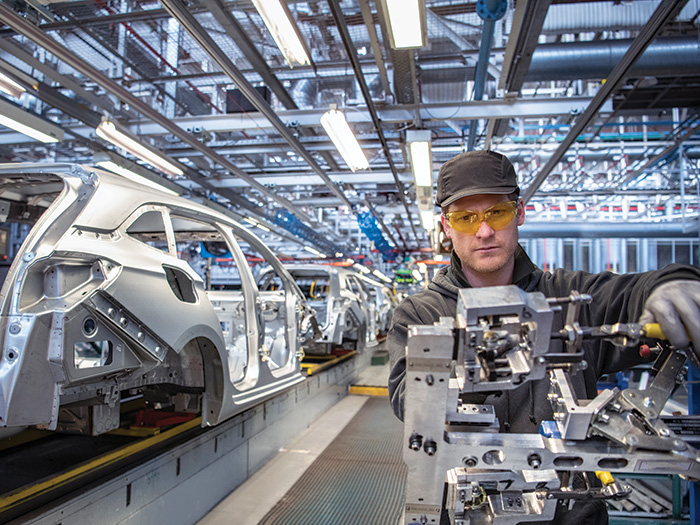Manufacturing Resilience: 8 in 10 Leaders Project Growth Despite Headwinds

Despite navigating trade policy uncertainty, supply chain volatility and labor market challenges, 8 in 10 U.S. manufacturing leaders expect positive business performance over the next 12 months, driven by strategic investments in technology and operational resilience, according to new research from Nationwide.
The manufacturing sector’s confidence remains remarkably robust despite mounting external pressures. Nationwide’s survey of 400 U.S. decision makers for mid-sized manufacturers, conducted in April 2025, revealed that 65% rated business conditions in the U.S. as good or excellent, while an even higher 79% expressed confidence about conditions for their specific businesses.
This optimism extends to trade policy impacts, with 64% of manufacturers believing that tariffs will lead to positive outcomes for their businesses within the next year. The confidence signals a sector that, while acknowledging significant headwinds, sees opportunity in strategic positioning and adaptation.
Technology investment has emerged as the primary growth driver, with nearly half (49%) of manufacturers identifying investment in AI, robotics and automation as their biggest opportunity over the next 12 months, the survey found.
This focus on technological advancement is followed by introducing new products or services (38%) and workforce development and upskilling (37%) top opportunities. Additionally, 31% of decision makers are prioritizing strengthening cybersecurity measures and 30% aim to improve risk management strategies.
Navigating Complex Risk Landscape
Manufacturing leaders face a complex web of challenges that require careful navigation, according to Nationwide. Financial concerns top the list, with persistent inflation, changing tariffs, high interest rates, domestic market volatility and supply chain delays creating ongoing pressure points. For manufacturers grappling with inflation, the most significant cost pressures stem from raw materials, energy, labor, maintenance and logistics.
Trade policy uncertainty continues to create strategic dilemmas. While 75% of respondents still rely on global suppliers, the shifting landscape is prompting significant supply chain reassessment. Nearly half of manufacturers (45%) expect to continue relying on tariffed imports, creating concern for 87% who worry that evolving trade policies could trigger additional supply chain delays and pricing disruptions.
Labor market challenges present another critical obstacle, according to the survey. Nearly two-thirds (64%) of manufacturers struggle to attract and retain skilled workers, with about 30% citing difficulty finding employees with appropriate capabilities (28%) or offering competitive compensation packages (27%). Perhaps most concerning for long-term sustainability, two-thirds report that younger workers do not view manufacturing as a desirable career path, potentially undermining future talent pipelines.
Strategic Investments Drive Resilience
Rather than remaining passive in the face of these challenges, manufacturers are taking proactive steps to strengthen their operations and competitive positioning. Supply chain risk mitigation has become a priority, with companies implementing multiple strategies simultaneously the survey shows. Top steps taken to reduce supply chain risks were diversifying suppliers (64%), frontloading inventory (52%), business continuity planning (48%), and talking to an insurance agent to ensure adequate coverage (45%).
The shift toward domestic sourcing is gaining momentum as a direct response to trade policy evolution. One in three manufacturers (35%) report actively shifting to more U.S.-based partners, while another 50% are considering such moves. This trend represents a fundamental recalibration of global supply chain strategies.
“While pressures are building, many manufacturers remain optimistic as they take proactive steps to position for future growth,” said Erika Melander, head of Nationwide’s national manufacturing practice. “As trade tensions weigh on manufacturers, operators aren’t standing still – they’re strategically looking at reducing global exposures, investing in technology and strengthening operations to better manage risk and stay competitive.”
Technology adoption is accelerating across operations, with digital tools being deployed to streamline processes and enhance efficiency. Inventory management systems lead adoption at 91%, followed by Internet of Things solutions at 83%. Manufacturers already implementing AI report tangible benefits, including cost savings (44%), improved forecasting and demand planning (39%), enhanced product quality (39%), and better worker safety (32%).
View the full survey here. &








